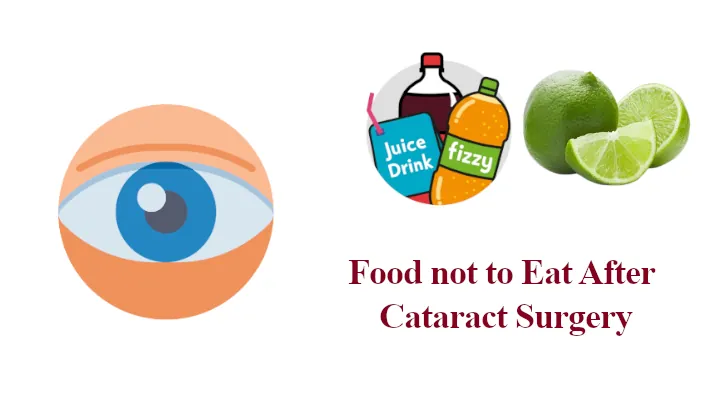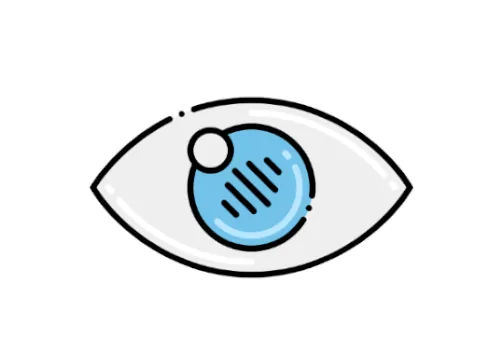11 Food not to Eat After Cataract Surgery

Are you looking for food not to eat after cataract surgery? A healthy recovery is essential for clear vision and general eye health after cataract surgery. Paying attention to your dietary choices is as important as following the post-operative instructions and medications.
During this precious time, what you eat can significantly affect your recovery and well-being. Some foods should be used cautiously or avoided entirely to decrease pain, lower the risk of complications, and promote optimum healing.
Knowing which foods to avoid will help you recover more quickly and improve the efficacy of your cataract surgery.
This article explores food not to eat after cataract surgery. You can maximize the effects of your medicine and work towards healthier eyes by being aware of these food choices.
In This Article
Food Not to Eat After Cataract Surgery
Here, we have listed what can you not eat after cataract surgery

1. Spicy Foods
We all love spicy foods, but it’s essential to be mindful after surgery. Spicy foods often contain compounds such as capsaicin, which can cause eye irritation and inflammation and disrupt the healing process.
It’s best to avoid overeating spicy food during your recovery period, as excessive tearing could potentially make any discomfort or inflammation worse.
2. Excessive Sugary Foods
We all know how difficult it can be to recover from surgery, but did you know that high sugar intake can contribute to systemic inflammation in the body?
Inflammation not only interferes with the healing process but can also exacerbate post-surgical discomfort or swelling.
That’s why maintaining stable blood sugar levels is so important for promoting optimal healing after surgery.
3. Caffeinated Drinks
Caffeine eating after cataract surgery is not advisable. Caffeine is a diuretic, which means that it can increase urine production and potentially lead to dehydration.
Dehydration can negatively affect the healing process and overall well-being as it may affect tissue repair and the body’s ability to flush out toxins.
Additionally, some medications you may be taking after cataract surgery could interact with caffeine, so follow your doctor’s instructions regarding medication and dietary restrictions!
4. Acidic Foods
We should be careful when consuming or handling highly acidic fruits like citrus fruits and tomatoes as they might cause some mild irritation to the eyes if they come into contact with the eye area during eating or handling.
This could be uncomfortable in the initial stages of healing, so let’s take extra precautions and enjoy our meals without worrying too much!
5. Excessively Hot or Cold Foods
It’s best to avoid overeating hot or cold foods. This is because your eye may be more sensitive during recovery, and these temperatures can cause discomfort or irritate the surgical area.
So take care of yourself and stick with room-temperature foods for a while – your eyes will thank you later!
6. Citrus Fruits
What food not to eat after cataract surgery is Citrus fruits like oranges, grapefruits, lemons, and limes aren’t completely off-limits after cataract surgery.
However, some individuals might be advised to consume them in moderation or avoid them temporarily due to their acid content.
This is because the acid can cause temporary sensitivity and discomfort after eye surgery. So, if you’re unsure about eating these fruits during this time, it’s best to check with your doctor first!
7. Fried and Greasy Foods
What food to avoid after cataract surgery is Fried and greasy items. These foods often contain high levels of unhealthy fats, such as trans fats and saturated fats, that can contribute to inflammation in the body. This inflammation can impede healing post-surgery and potentially affect the eye and surrounding tissues.
8. Alcoholic Beverages
It’s essential to avoid or consume alcoholic beverages in moderation. This is because alcohol can interact with the medications prescribed for recovery and reduce their effectiveness or cause adverse effects.
Drinking alcohol can weaken your immune system, making it harder for your body to fight off potential infections.
9. Processed and Fast Foods
Processed and fast foods are generally not recommended as they lack essential nutrients your body needs for healing and recovery. Instead, focus on nutrient-rich whole foods like fruits, vegetables, legumes and lean proteins, which will help support tissue repair while strengthening your immune system.
10. Hot Condiments
It’s best to avoid hot condiments like spicy sauces and seasonings. These can irritate the eyes after surgery and may interfere with the healing process – so it’s best to steer clear of them for a while!
11. Excessive Salt
It’s essential to be mindful of your salt intake after cataract surgery. While it can be tempting to indulge in salty foods, excessive consumption may lead to water retention and swelling, potentially affecting healing.
To ensure a successful recovery, try limiting your salt intake and focus on eating healthy meals that are low in sodium instead!
Frequently Asked Question & Answers-
Q. Can I cook food after cataract surgery?
Ans- It’s essential to take certain precautions for a smooth recovery. Hygiene and food safety are essential – ensure you’re practising good hygiene measures so as not to get any infections that could affect your overall health during recovery.
Additionally, be wary of anything that could come into contact with your eyes while cooking, such as steam or hot oil – consider wearing protective eyewear or glasses, just in case!
Q. Can you eat spicy food after cataract surgery?
Ans- Eating spicy food after cataract surgery should be avoided. After cataract surgery, your eye might feel uncomfortable and dry, making it worse if you eat something too spicy.
Q. How long after cataract surgery can I eat?
Ans- You can usually eat and drink shortly after your cataract surgery. As long as you feel comfortable and your healthcare provider hasn’t given any specific dietary restrictions. It’s wonderful to go ahead with light snacks or drinks.
Conclusion
In conclusion, following cataract surgery with a careful and balanced diet is essential for encouraging a speedy recovery and assuring the best possible healing. Although there are no set restrictions on certain meals, it’s advisable to be cautious about confident choices that could potentially impact your healing process.
Be sure to read:
References
- Food and nutrient intake and risk of cataract
- Impact of Food Habits on Cataract Development Among Adults
- Diet and cataract: A case-control study





